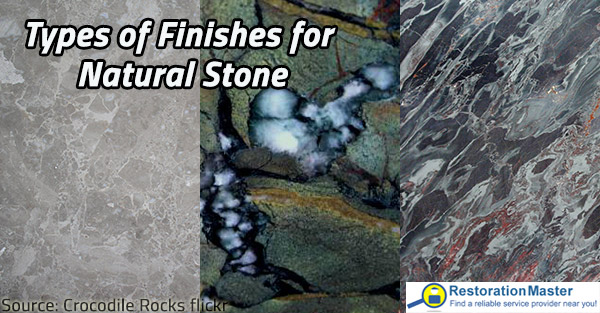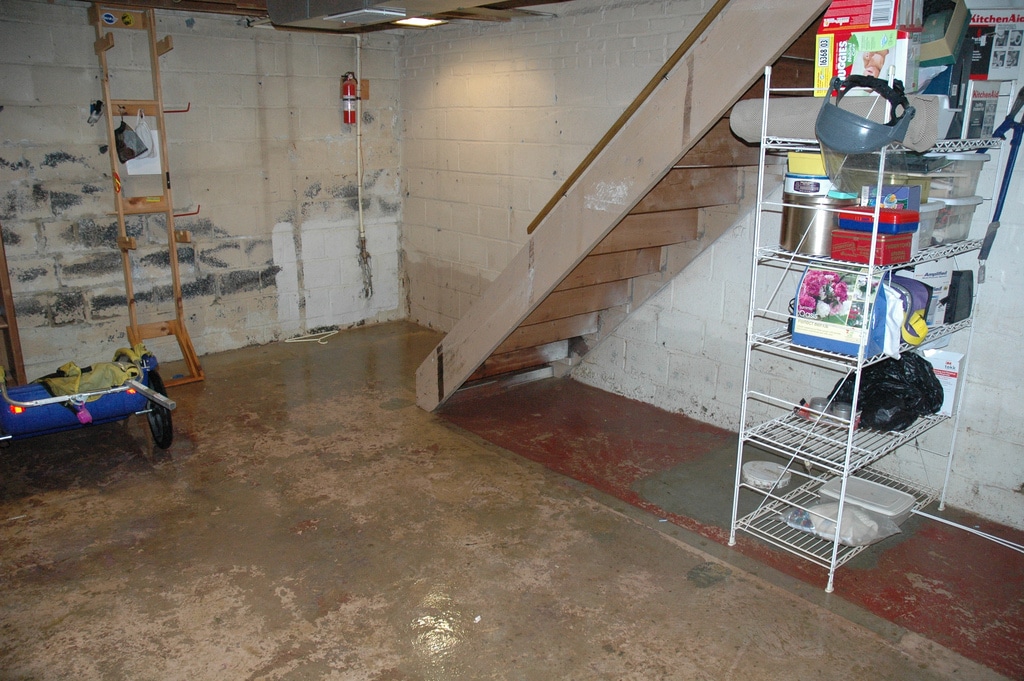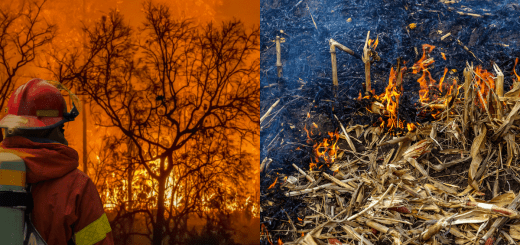What to Do and NOT Do After a Fire in Your Home
A fire is one of the most difficult and devastating experiences that can happen within your home. No matter the size of the fire, the damage can be widespread as direct contact from the flames as well as the heat can cause damage in the affected areas. Even after the fire is out, the smoke and sootSoot is fine black particles composed of carbon and other ma... More left behind will continue to spread to areas beyond those affected by the fire and settle on objects and surfaces. Materials affected by smoke and sootSoot is fine black particles composed of carbon and other ma... More can experience tarnishing and etching and this damage will become permanent without quick cleaning.

It is important to know what actions to take in the aftermath of a fire to help limit the damage and protect yourself. Homes are unsafe in the aftermath of a fire as smoke and sootSoot is fine black particles composed of carbon and other ma... More can be hazardous to your health and the home may be structurally unstable. There can also be damage you don’t see such as damage to appliances that can make them dangerous to use. Knowing what you should and shouldn’t do after a fire not only helps prevent the damage from getting worse, but it can also save your life.
In this guide, we will discuss the actions you should take after a fire has occurred in your home as well as the actions you must avoid. Taking the right actions to protect yourself and limit the spread of the damage will help make the fire damage restorationFire damage restoration is the process of repairing and rest... More process quicker and easier so you can get your home back.
What to Do After a House Fire
Experiencing a fire in your home may leave you panicked or overwhelmed and not sure of what to do next. You can help with the recovery of your property by taking these actions after a fire:
Listen to Firefighters
After the fire department puts out the fire in your home, they will explain the condition of your home and advise you on what to do next. First, they will let you know the extent of the damage, including damage caused by the fire, smoke, and water used to extinguish the fire. They will also tell you whether or not it is safe to enter the home or use things like appliances and utilities. Make sure you heed their advice if they tell you to stay out of the home.
If you do not know who to call after a fire has occurred, the fire department can also refer you to a fire damage restorationFire damage restoration is the process of repairing and rest... More professional as well as other support services.
Document Damage
Before you call your insurance provider, it is important to document as much of the damage as possible to help with your claim. Take photos and videos of the damage and save the files where they can be easily accessed later. This documentation provides the proof you need to get a fair claim for the damage. Make sure to document every but of damage that can be safely documented without putting yourself in danger.
Call Insurance Provider
After thoroughly documenting the damage, call your insurance provider. The insurance agent will advise you on the next steps to take based on the damage to your home. They will likely send an adjuster to your home to inspect the damage and determine if your home is salvageable or destroyed. If the home is salvageable, they can refer you to a fire damage restoration professional.
Separate Damaged from Undamaged Possessions
If you can go back into your home safely, try to separate undamaged items from the damaged items in the affected areas. Separating the damaged items will make it easier for restorationRestoration is the process of returning a property to its pr... More professionals to get to them and start the cleaning process. It also helps to make a list and take photos of your damaged items for your insurance claim.
Items that have not been damaged by the fire may still require professional cleaning. All consumables like food, drinks, and medications should be thrown away.

Find Somewhere to Stay
In most cases, you will not be able to stay at your home while the restorationRestoration is the process of returning a property to its pr... More is taking place. You should make accommodations to stay elsewhere, either with friends or family or at a hotel. Your insurance provider can accommodate food, clothing, and shelter for a period of time after the fire.
What NOT to Do After a Fire
As mentioned previously, homes are often left in a dangerous condition in the aftermath of a fire. It is important to know what actions to avoid so you don’t put yourself in danger or make the damage worse.
Enter the Home
If the fire department tells you that your home is not safe to enter after the fire, then do not enter the home under any circumstances. You should only enter your home after a fire if the fire department tells you that it is safe to do so.
Use Electrical Appliances
If you can enter your home safely, avoid using any electricity or electrical appliances that may have been exposed to fire, smoke, or water. You should also check if the ceiling is wet before turning on a light. It is possible that the appliances and electrical wiring were damaged by the fire which makes it dangerous to try and use them. If you are not sure if an area has been exposed, it is best to avoid using the electricity or appliances.
Use Utilities
After a fire, it is best to have your utilities shut off including your gas, electricity, and water. Call the utility companies as soon as possible to tell them you had a fire at your home and to shut off your services. They will advise you on when it is safe to turn them back on.
Move Your Car
If your car was damaged by the fire or near the fire, do not move it. It may be unsafe to start if it was exposed to fire and smoke.
Clean Smoke and Soot Damage
Items and materials damaged by smoke and sootSoot is fine black particles composed of carbon and other ma... More require specialized cleaning products and methods to be salvaged. You should not try to clean anything damaged by smoke or sootSoot is fine black particles composed of carbon and other ma... More because improper cleaning methods will make the damage worse.

Wash Clothing or Fabrics
Clothing, curtains, bedsheets, and other fabrics exposed to the fire and smoke require specialized cleaning to extract smoke and odorAn odor is a smell, often detectable by the human nose, whic... More particles. Washing these items yourself in a regular washing machine can further embed smoke odors in the fabric.
Professional Fire Damage Restoration
Experiencing a fire in your home is overwhelming but knowing what actions to take and what to avoid in the aftermath of a fire will help you get on the right track to recovery. One action you must take after a fire is calling a fire damage restoration professional to clean up and repairRepair is the act of fixing or restoring damaged property, m... More your home.
RestorationRestoration is the process of returning a property to its pr... More specialists can stabilize and repairRepair is the act of fixing or restoring damaged property, m... More structural damage and effectively clean up damage from smoke and sootSoot is fine black particles composed of carbon and other ma... More. They will also work with your insurance company to help with your claim.












